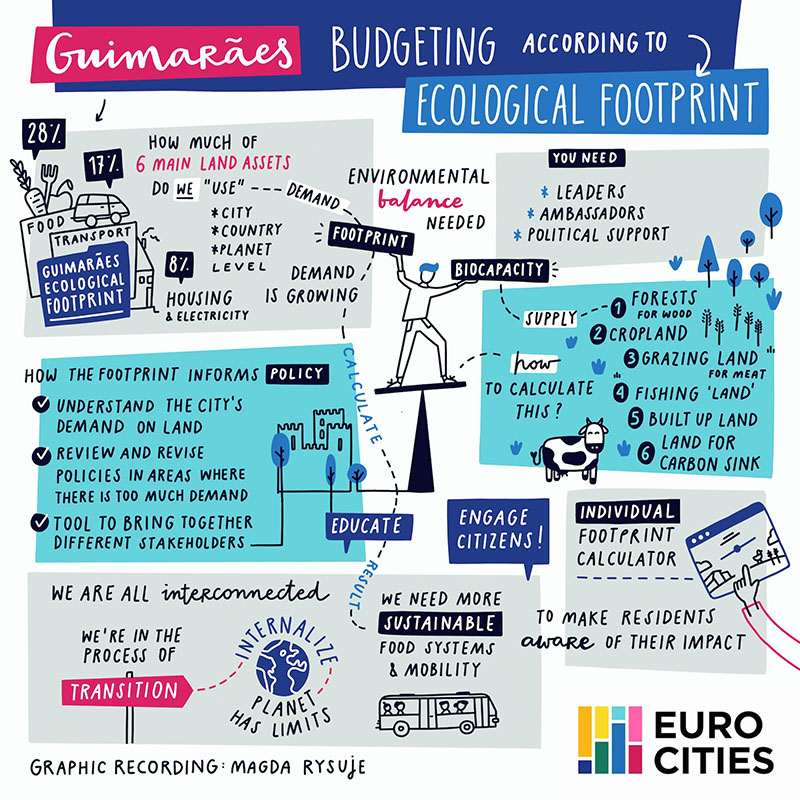How can we downscale one-planet thinking to the city level? How can planetary boundaries act as a supplement to local level planning? What does ‘living within the means of our planet’ mean for urban planning? Those are questions which Dr. Alessandro Galli, Mediterranean Program Director at Global Footprint Network, helped answer in conversation with the chief economist of the City of Copenhagen, Thomas Tranekær, and Katherine Richardson, leader of the Sustainability Science Centre, University of Copenhagen, and co-author of the Planetary Boundaries: Guiding Human Development on a Changing Planet (2015), at Eurocities Environment Forum 2021.
 Held online on April 29, Eurocities Environment Forum 2021 was hosted by the municipalities of Porto and Guimarães in Portugal. Discussions focused on what transitioning to a healthy and thriving city for all means, exploring case studies and analyzing how to achieve the status of a thriving city going forward.
Held online on April 29, Eurocities Environment Forum 2021 was hosted by the municipalities of Porto and Guimarães in Portugal. Discussions focused on what transitioning to a healthy and thriving city for all means, exploring case studies and analyzing how to achieve the status of a thriving city going forward.
Eurocities is a network of more than 190 cities in 38 countries, representing 130 million people. Because local governments are essential partners for turning EU policies and ambitions into reality, the organization advocates for cities to be included directly in European decision making and to stand in direct receipt of European funds. It coordinates joint work, knowledge-sharing and Europe-wide activity.
In the excerpt below, you may watch Alessandro present our work with the municipality of Guimarães as we, in partnership with the University of Aveiro, applied the Ecological Footprint accounting approach to assess the city’s resource-consumption profile and helped it frame its policy making for sustainability. Alessandro discusses also the responsibility of cities to green their act beyond their administrative territory.
You may watch the full panel conversation here.
CAPTION: Visual summary from the EEF 2021 workshop “Fiscal budgeting according to ecological footprint in Guimarães”, a workshop led by Alessandro Galli of Global Footprint Network, Sara Moreno Pires, lead academic researcher for the ZERO project ‘Cities Footprinting’ in partnership with Global Footprint Network, University of Aveiro, and Isabel Loureiro from the Municipality of Guimarães. What if financing was dependent on environmental impact? How can city leaders use footprint data to better manage limited resources, reduce economic risk, and improve well-being? Discover how a Portuguese pilot project is exploring linking Ecological Footprint and biocapacity data to the allocation of national budget down to the city level.
You may watch the full panel conversation here.


